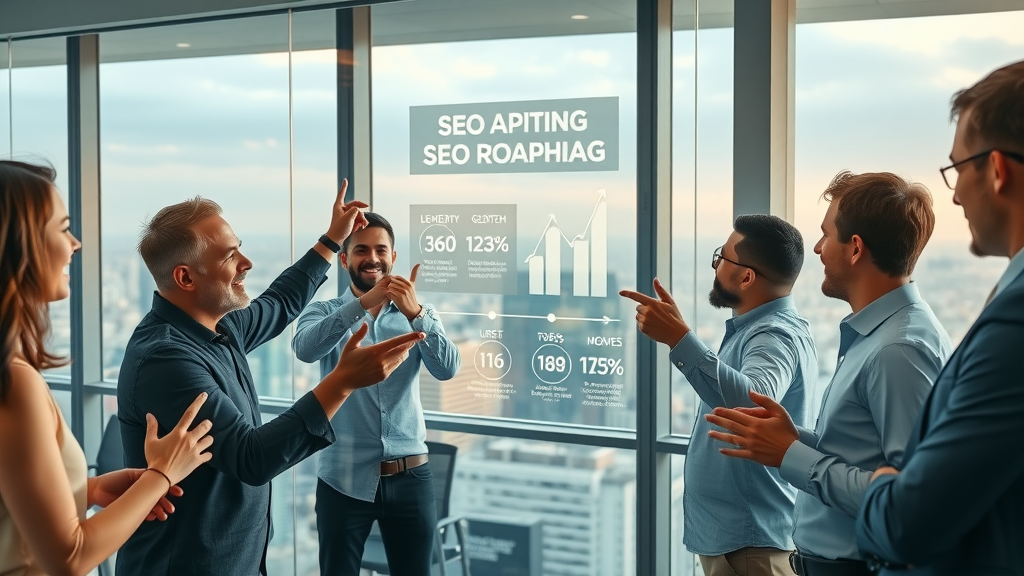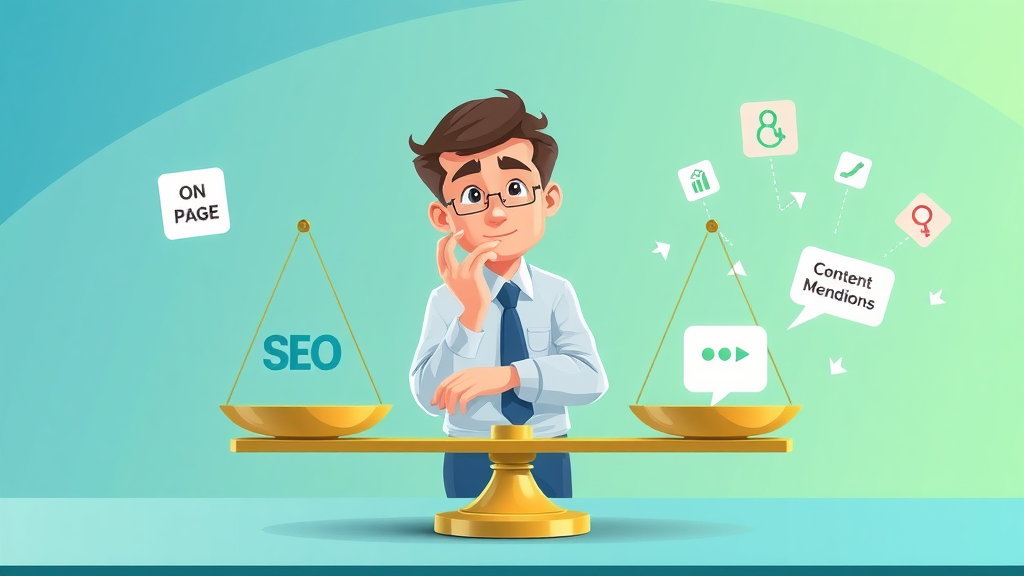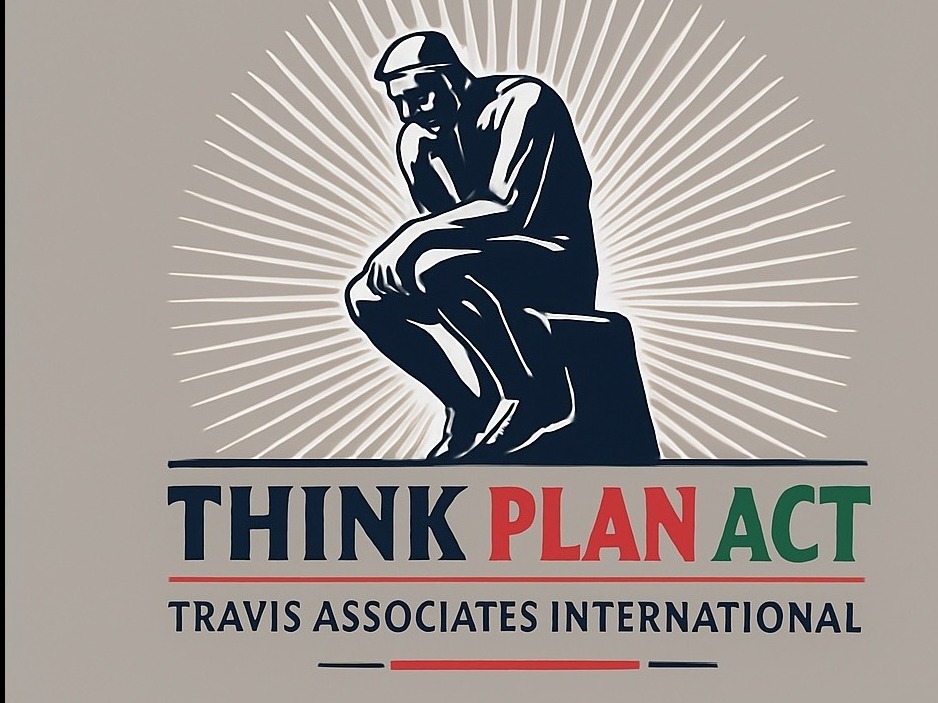Did you know that over 70% of your search engine rankings could be swayed by factors outside of your website? While on-page SEO gets the spotlight, off-page SEO is the silent powerhouse that can catapult your site’s authority, visibility, and ranking in search results. If you’re ready to discover fast, proven off-page SEO tactics – and learn how seamless tweaks can drive dramatic results – read on. This guide delivers everything you need to stay ahead of the game and master off-page SEO for real-world success.
Over 70% of Search Engine Rankings Can Depend on Off-Page SEO Factors: Why Prioritize Off-Page SEO?
- Most website owners focus almost exclusively on on-page SEO, missing out on crucial off-page SEO strategies that can propel their search engine ranking. Learn how to integrate off-page SEO into your overall SEO strategy for powerful results.
Off-page SEO is often underestimated, yet it remains a fundamental force in determining where your website appears in search engine rankings . While optimizing content, keywords, and site structure is essential, prioritizing off-page efforts such as link building , brand mentions, and reputation management taps into authority signals that search engines use to judge credibility beyond your site’s walls. Put simply, if your site isn’t being noticed, referenced, or talked about beyond its own pages, you may struggle to outshine your competitors – no matter how well-polished your on-site content is.
Integrating off-page SEO into your broader SEO strategy helps multiply your website’s value in the eyes of Google and other search engines . This broad approach not only brings you closer to the top of search results but also cultivates greater trust, stronger brand awareness, and long-term authority. By blending smart off-page tactics with meticulous on-page optimization, you build a formidable foundation that can withstand future algorithm shifts and industry changes.

Mastering Off-Page SEO for Higher Search Engine Rankings
- Explore actionable off-page SEO techniques, understand their importance as ranking factors, and see how they complement your SEO strategy for optimal growth.
To thrive in today’s highly competitive environment, mastering off-page SEO is non-negotiable. Whether you’re aiming for that coveted first page position or trying to boost an established site to the next level, link building , smart brand mentions, and a robust business profile build a lasting reputation in the digital world. These methods act as trust signals, reassuring search engines that your website deserves authoritative status.
Key off-page SEO techniques —from acquiring quality backlinks to leveraging strategic partnerships—don’t just bolster your engine rankings ; they create an interconnected network of signals that drive traffic and fuel real growth. When you integrate off-page methods with an agile SEO strategy , you accelerate your path to top search engine results and achieve results that outpace traditional on-site SEO focuses . The following sections walk you through the actionable tactics that yield results, often quicker than expected.
What You'll Gain: Your Roadmap to Off-Page SEO Success
- Learn proven off-page SEO tactics, discover the best link building practices, understand the impact of brand mentions and business profiles, and access resources for ongoing SEO advancement.
By the end of this guide, you’ll be able to differentiate and implement high-ROI off-page SEO tactics, evaluate and pursue the best ranking factors for your niche, and recognize how each component fits within an overarching SEO strategy . You’ll get hands-on insights into generating quality backlinks , optimizing your business profile , harnessing brand mentions , engaging social media , and more. Expect practical examples, expert tips, FAQs, and a powerful list of curated resources—your complete roadmap to off-page SEO mastery.

Understanding Off-Page SEO and Its Core Components
- Define off-page SEO in the context of overall SEO strategy.
- Breakdown of off-page SEO vs on-page SEO: which impacts search engine rankings more?
- Table: Off-Page SEO vs. On-Page SEO – Key Differences and Impact on Engine Rankings
Off-page SEO refers to all optimization activities performed outside of your own website to enhance its ranking and authority across search engine results . Unlike on-page SEO (which deals with everything inside your site—content, meta tags, keywords, and structure), off-page SEO focuses on external factors like link building , brand mentions , online reviews, and social sharing. The interplay between these factors determines the level of trust and relevance that search engines attribute to your site, affecting how you compete in crowded search landscapes.
While both elements are crucial, many studies (including those cited in leading SEO blogs) indicate that off-page SEO—especially the quality of your backlink profile —can have a more significant and lasting impact on search engine ranking than on-page efforts alone. However, they are not mutually exclusive: the most successful sites balance strong technical and on-site optimization with consistent, smart off-page strategies. Below is a comparison to help clarify the distinction and influence of each approach.

| Factor | On-Page SEO | Off-Page SEO | Impact on Rankings |
|---|---|---|---|
| Core Focus | Content, keywords, page structure | Backlinks, brand mentions, reviews | Both are essential, but off-page often tips the scale for authority/credibility |
| Control | Direct, internal (site owner managed) | Indirect, external (industry and audience influenced) | On-page optimization sets the stage; off-page signals amplify domain strength |
| Longevity | Needs regular updates | High-quality links/mentions boost for years | Off-page has longer-term passive ranking effects |
| Examples | Meta tags, content, internal linking, mobile UX | Link building, NAP citations, positive reviews, influencer sharing | Best rankings achieved by blending both approaches |
Essential Off-Page SEO Techniques That Drive Results
Link Building: Still the #1 Off-Page SEO Ranking Factor
- Why quality backlinks matter for search engine ranking
- Broken link strategies: turning dead links into SEO wins
- Guest posting for authoritative backlinks and brand exposure
Despite momentary shifts in SEO trends, link building remains at the heart of off-page SEO . Quality backlinks —links from trusted, high-authority sites—act as upvotes in the eyes of search engines , making them one of the strongest signals of authority and relevance. It’s important to focus on earning links from reputable sources within your niche, as links from well-regarded pages carry more weight and can dramatically increase your search engine ranking .
Practical strategies like broken link building (identifying and replacing dead or outdated links on relevant websites with your own content) can yield powerful quick wins for your backlink profile. Additionally, guest posting on industry-leading blogs not only provides valuable exposure but also creates high-quality, organic links back to your site—essential for establishing trust and authority in any SEO strategy .

"A single quality backlink can be more effective than hundreds of low-value links. – Industry Expert"
Brand Mentions: Engine Rankings Beyond the Link
- How unlinked brand mentions boost brand awareness and search engine trust
- Leverage brand mentions within your SEO strategy for broader off-page impact
Not all authority is passed through hyperlinks. Brand mentions —even those without a clickable link—can help build your site’s trustworthiness and relevance in the eyes of both audiences and search engines . By consistently getting your brand referenced in industry publications, forums, and social platforms, you grow brand awareness and reinforce positive off-site signals that affect engine rankings .
Incorporate tracking and pursuing brand mentions into your regular SEO efforts . Promptly engaging with third-party content, encouraging satisfied clients to mention your business online, and collaborating with thought leaders boosts your exposure beyond the backlink. Ultimately, a strong brand presence cushions your site against the volatility of algorithm changes and entrenches your reputation as a go-to resource in your niche.
Building Powerful Social Media Signals
- The relationship between social media activity and off-page SEO
- Engaging audiences for organic shares, brand mentions, and increased business profile visibility
While likes and shares don’t directly translate into higher engine rankings , an active social media presence can drastically amplify your site’s exposure, facilitating more brand mentions and even organic backlinks. Consistent engagement on key platforms—sharing valuable content, responding to followers, and participating in trends—helps you reach broader audiences and amplifies the effectiveness of your off-page SEO strategy.
Additionally, gaining traction on social media often leads to increased coverage and opportunities for guest posting, influencer shares, and brand mentions, which all signal legitimacy to search engines . A proactive approach to social media can supercharge your other off-page tactics, resulting in a more diverse and resilient presence across the web.

Business Profiles and Google Business Profile Optimization
- Why every SEO strategy must include an optimized Google Business Profile
- Off-page benefits: NAP citations, user reviews, and local SEO impact
Claiming and optimizing your Google Business Profile and other business directories is a simple yet powerful off-page SEO move. It validates your brand’s legitimacy, supports local rankings, and helps searchers find accurate information about your services. Ensure your Name, Address, and Phone Number (NAP) are consistent across all platforms, leverage user reviews, and keep listings up-to-date to maximize their impact.
An optimized business profile also benefits from user-generated content (reviews and photos), which enhances trust and signals active engagement to search engines . These profiles play a key role in local SEO —a crucial aspect for businesses targeting location-based keywords and traffic, and a major contributor to overall engine ranking .
Advanced Off-Page SEO Techniques for Sustainable Growth
Local SEO and Off-Page SEO Synergy
- Local business citations and their role in off-page SEO
- Guest posting for regional relevance
For businesses serving specific regions or cities, combining local SEO techniques with off-page strategies is critical. Securing accurate citations on sites like Yelp, Yellow Pages, and local chamber sites ensures your business is properly referenced and discoverable in regional searches. These mentions, along with links from nearby organizations, act as trust signals for both searchers and search engines .
Another powerful tactic is guest posting on regional authority blogs or news outlets. This not only enriches your backlink profile but also establishes your business as a known presence within your local community. Maintaining relevance and authority at the local level provides an added boost to overall engine results and helps outrank larger, less locally targeted competitors.

Leveraging Content Marketing for Off-Page SEO
- Infographics, podcasts, and videos as linkable assets
- Amplifying reach through social media and co-marketing partnerships
Creating linkable assets —high-value infographics, in-depth guides, podcasts, and engaging videos—is one of the smartest ways to earn organic links and mentions. These formats are shareable, visually appealing, and often picked up by media outlets, influencers, and bloggers seeking quality content to reference.
Co-marketing partnerships with complementary brands and strategic use of social media can amplify your content even further, opening doors for additional backlinks and brand exposure. A well-planned content marketing campaign provides value to your audience while continuously feeding your off-page SEO machine.
Managing Brand Reputation for Engine Rankings
- How online reviews and ratings affect off-page SEO
- Strategies for responding to feedback and boosting brand mentions
Brand reputation is more than just a public-relations initiative: positive online reviews and ratings are direct ranking factors in local SEO and signal trust to search engines everywhere. Actively collecting, monitoring, and responding to reviews shows both customers and Google that you’re committed to quality and service.
Proactively addressing negative feedback—publicly and promptly—can turn dissatisfied visitors into brand advocates and lower the impact of less favorable coverage in engine results . Encourage happy clients to share their positive experiences and tie review generation into other off-page SEO tactics for a holistic strategy.

Quick Off-Page SEO Wins You Can Implement Today
- Claim all relevant business profiles and directories
- Secure easy brand mentions via testimonials and partnerships
- Find and fix broken link opportunities on authority sites
- Launch a guest post campaign on reputable industry blogs
- Boost social media engagement for shareable content
Quick wins are not about gaming the system—they’re about laying a solid off-page SEO foundation that generates ongoing benefits. By focusing on these actionable steps, you can immediately improve your site’s visibility, earn valuable quality backlinks , and increase brand mentions without waiting months for results. Each tactic strengthens your online presence and positions you to capitalize on the most powerful ranking factors out there.
"Quick wins are not shortcuts, but foundational steps for off-page SEO mastery." – SEO Strategist

Common Off-Page SEO Mistakes to Avoid
- Neglecting the quality of backlinks in pursuit of quantity
- Relying on outdated link building techniques
- Ignoring brand mentions and business profile optimization
- Treating social media as an afterthought
Many sites falter by chasing as many backlinks as possible—regardless of source—rather than prioritizing quality backlinks . Outdated SEO techniques , such as link schemes or bulk directory submissions, can actually harm your site’s standing with search engines . Accurate, up-to-date business profiles and active social media engagement remain among the most overlooked elements—don’t let them fall through the cracks in your SEO strategy .
Remember, modern off-page SEO is not about shortcuts but sustainable growth. Avoid these mistakes for long-term search engine ranking health and to ensure every hour spent on off-site efforts delivers maximum ROI.
"Avoiding common mistakes in off-page SEO is just as important as implementing best practices."

Tracking Off-Page SEO Performance: Metrics and Tools
- Key off-page SEO metrics: Domain authority, backlinks, brand mentions, referral traffic
- Essential tools for off-page SEO analysis: Ahrefs, SEMrush, Moz, Google Analytics
- Table: Comparison of Top Off-Page SEO Tools and Their Key Features
Evaluating the true impact of your off-page SEO means tracking both quantitative and qualitative metrics. Domain authority , backlink counts, diversity, brand mentions , and referral traffic provide a snapshot of your off-site progress. Rely on leading SEO analysis tools—like Ahrefs, SEMrush, Moz, and Google Analytics—to gain actionable insights, monitor your link profile, and spot emerging opportunities (or threats).
Here’s a quick comparison of the top platforms and what they can help you measure:

| Tool | Key Features | Best Used For | Strength |
|---|---|---|---|
| Ahrefs | Comprehensive backlink analysis, domain authority scoring, competitive research | Backlink monitoring and competitor benchmarking | Largest backlink index, user-friendly |
| SEMrush | Organic research, link building tools, brand mention tracking | All-in-one SEO campaign management | Versatile, great for campaign tracking |
| Moz | Domain authority checker, link explorer, local SEO tools | Quick authority checks and link profile health | Easy integration, trusted metrics |
| Google Analytics | Referral traffic, user behavior analysis, goals/events | Traffic source evaluation | Free, robust ecosystem |
How Off-Page SEO Fits Into a Comprehensive SEO Strategy
- Aligning off-page SEO with your overall SEO strategy
- How on-page and off-page SEO interact for maximum search engine impact
- Table: SEO Strategy Breakdown: On-Page vs. Off-Page vs. Technical SEO
A bulletproof SEO strategy blends strong on-page work—optimized content, proper internal linking, and smart technical SEO—with ongoing off-page SEO efforts. These elements are mutually reinforcing: internal improvements enable your site to capitalize on external trust signals, and each external mention or link packs more punch when your site is in peak technical health.
Coordinate your on-page , off-page , and technical strategies to build authority, resilience, and a top-tier search engine ranking that lasts far into the future.
| SEO Discipline | Focus | Main Activities | Impact on Rankings |
|---|---|---|---|
| On-Page SEO | Site & Content Quality | Keyword targeting, metatags, headers, content, UX | Enables better crawling, improved relevance |
| Off-Page SEO | Authority & Trust | Link building, brand mentions, social profiles | Boosts trust score, signals domain value |
| Technical SEO | Site Health & Speed | Crawlability, mobile optimization, structured data | Removes barriers, improves indexation |
Expert Insights: Quotes on Off-Page SEO Success
"Off-page SEO is the backbone of authority building in any modern SEO strategy." – Leading SEO Analyst
"Without high-quality off-page efforts, your on-page optimizations may never reach their full ranking potential." – SEO Consultant
Curated List: Top Off-Page SEO Resources and Tools
- Authoritative blogs and YouTube channels covering off-page SEO
- Recommended software for link building, brand mention tracking, and business profile management
Explore advanced techniques and keep pace with the latest trends by following respected industry resources. Top blogs like Moz, Ahrefs, Backlinko, and Search Engine Journal provide expert advice and regular updates on all aspects of off-page SEO . YouTube channels such as Neil Patel and Brian Dean offer visual walkthroughs of successful campaigns.
For tools, start with Ahrefs, SEMrush, Moz, and Google Search Console for in-depth link building and brand mention analysis. Mention, Brand24, and Yext offer seamless monitoring for business profile management and online reputation oversight, helping you stay agile with every shift in the digital landscape.

People Also Ask
What is an off-page in SEO?
- Off-page SEO encompasses strategies and techniques performed outside your website to improve its search engine ranking and authority. Examples include link building, brand mentions, social media marketing, and optimizing business profiles.
Off-page SEO refers to any optimization efforts that you make beyond your website’s own pages. These include activities like acquiring quality backlinks from other sites, encouraging brand mentions , leveraging social media platforms, and ensuring your business appears in trusted directories. The goal is to increase your site’s authority and relevance in the digital ecosystem, ultimately giving you a leg up in search engine results .
What is the difference between onpage SEO and offpage SEO?
- On-page SEO refers to optimization activities performed within your own website (like keywords, meta tags, and content quality), while off-page SEO involves external factors such as backlinks, brand mentions, and social profiles that influence your search engine ranking.
On-page SEO is all about refining your website’s internal features—content, structure, keyword placements, meta titles, and more. Off-page SEO, conversely, is about how the rest of the internet perceives and interacts with your brand, measured by factors like backlinks, reviews, and mentions across third-party sites, which help elevate your authority and rankings in search engine algorithms.
Is off-page SEO still effective for SEO?
- Absolutely. Off-page SEO remains a vital ranking factor for search engine rankings. Search engines continue to value external signals, such as quality backlinks and brand authority, to assess the relevance and trustworthiness of a website.
Yes—off-page SEO is as vital as ever. While search engines have evolved, they continue to rely on signals like backlinks, brand mentions , and social buzz to determine website credibility. Skipping off-page efforts can leave your site struggling to gain traction, no matter how much you invest in on-page refinements.
What are offsite SEO strategies?
- Top offsite (off-page) SEO strategies include authoritative link building, guest posting, earning high-value brand mentions, managing your business profile, building a strong presence on social media, and encouraging positive reviews on relevant platforms.
Effective offsite strategies involve everything from link building with reputable partners, publishing guest posts on authority blogs, nurturing positive reviews and brand mentions, to participating in niche-relevant forums and social channels. Each of these builds trust, boosts your brand’s authority, and supports better performance in search engine results .
- A walkthrough of recent off-page SEO campaigns that improved search engine ranking, featuring before-and-after analytics and practical advice.
- Watch industry experts break down actionable off-page SEO tactics and highlight the biggest ranking factor opportunities for your site.
- Explore common off-page SEO mistakes in practice, and learn quick methods for identifying and correcting issues before they harm your search engine rankings.
FAQs About Off-Page SEO
- What is a quality backlink in off-page SEO?
- How do social media platforms support off-page SEO strategies?
- What are the best tools for tracking off-page SEO performance?
- How do I recover from a penalty caused by bad off-page SEO practices?
- What is a quality backlink in off-page SEO?
- A quality backlink comes from a trusted, high-authority website that is relevant to your industry or topic. These links pass stronger trust and are less likely to be considered spammy by search engines. Focus on earning backlinks from respected sources with natural, editorial context for best results.
- How do social media platforms support off-page SEO strategies?
- Social media platforms provide channels to distribute content, engage audiences, and generate brand mentions. Viral or widely shared posts often lead to natural backlinks and increased brand visibility, both of which contribute to off-page SEO effectiveness and improved rankings.
- What are the best tools for tracking off-page SEO performance?
- Leading tools include Ahrefs (for backlink monitoring), SEMrush (for competitor and link-building tracking), Moz (for domain authority and link exploration), and Google Analytics (for referral traffic analysis). Each offers features tailored to analyzing your off-site SEO growth.
- How do I recover from a penalty caused by bad off-page SEO practices?
- Start by conducting a thorough link audit to identify low-quality or spammy backlinks. Use Google’s Disavow Tool to discount these bad links. Then, shift focus to earning high-quality, organic backlinks and ensure all off-site activities comply with Google Webmaster Guidelines.
Take Your Off-Page SEO to the Next Level
- Integrated off-page SEO is the key to outperforming your competition in search engine ranking. Act now to harness the full power of off-page factors—and if you want expert guidance, let’s have a chat, call 908-641-9211
Take action today, and let your off-page SEO unlock higher authority, lasting rankings, and real business growth!
To enhance your understanding of off-page SEO and implement effective strategies, consider exploring the following resources:
-
“What is Off-Page SEO? 8 Techniques That Actually Work” : This article provides actionable techniques such as publishing research-backed content and distributing it effectively to boost your site’s authority. ( salteq.net )
-
“Off-Page SEO: What It Is & Expert Strategies to Use It” : Neil Patel delves into the importance of off-page SEO, offering expert strategies like link building and content marketing to enhance your website’s reputation and search engine rankings. ( neilpatel.com )
By leveraging these insights, you can develop a robust off-page SEO strategy that complements your on-page efforts, leading to improved search engine visibility and authority.
 Add Row
Add Row  Add
Add 




Write A Comment